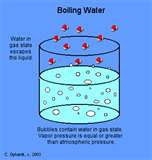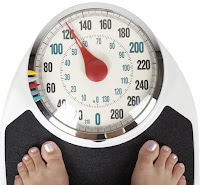Fault:A crack in the crust,whose sides show evidence of motion.
Geologist:A scientist who studies Earth.
Magma:Hot,molden rock deep below Earth´s surface.
Lava:Magma that reaches Earth´s surface.
Weathering:The breaking down of rocks into smaller pieces.
Erosion:The picking up and carrying away of piecesof rock.
Deposition:The dropping off of bits of eroded rock.
Meteorite:A chunk of rock from space that strikes a surface (such as Earth or the moon).
Monday, September 6, 2010
Saturday, September 4, 2010
Vocabulary 8
Solar system: The sun and the objects that are traveling around it. Planet: Any of the eight large bodies that travel aruond the sun and shine by reflecting its light.
Gravity: A force of attraction, or pull, between any object and any another objects around it.
Inertia:The tendency of moving object to keep moving in straight line.
Lithosphere:The hard, outer layer of earth,about 100 kilometers thick.
crust:The rocky surface that makes up the top of lithosphere.
Resource:Any material that helps support life on erath.
Hydrosphere:Earth's water.
Thursday, September 2, 2010
Vocabulary 7
Physical change:A change in size,shape,or state,without forming a new subtance.Physical changes include separating matter into different parts or mixing matter with new parts as long as no new subtances are made.
Chemical change:A change in matter that produces a new subtance with different properties from the original.The changes in the liking patterns of the atoms create new subtances.
Chemical reaction:A chemical change of original subtances into one or more new subtances.
Reactant:One of the of the original subtances before a chemical reaction takes place.
Product:One of the new subtances produced when a chemical reaction takes place.
Chemical change:A change in matter that produces a new subtance with different properties from the original.The changes in the liking patterns of the atoms create new subtances.
Chemical reaction:A chemical change of original subtances into one or more new subtances.
Reactant:One of the of the original subtances before a chemical reaction takes place.
Product:One of the new subtances produced when a chemical reaction takes place.
Wednesday, September 1, 2010
Vocabulary 6
Mixture:Two or more parts blended together yet keeping their own propertiesand not turning into a new subtance.
Solution:A mixture in which subtances are completely blended so that properties are the same throughout and the subtances styay blended.
Suspension:A mixture of subtances that separate upon standing.
Colloid:Particles (or droplets)large enough to block out light spread throughout another subtance.
Emulsion:A liquid spread throgh another liquid.
Aerosol:Liquid drops or solid particles spread through a gas.
Gel:A solid spread through a liquid.
Foam:A gas spread through a liquid or solid.
Vocabulary 5
State of matter:Any of the forms matter can exist in.Adding or removing heat can make subtances change from one subtance into another.
Melting point:The temperature at which a solid changes state into a liquid.
Melting point:The temperature at which a solid changes state into a liquid.
Boiling point:The temperatura at which aliquid change state into a gas.The boiling point have their own temperature.
Freezing point:The temperature at which a liquid changes satate into a solid.
Saturday, August 21, 2010
Vocabulary 4
Element:Abasic building block of matter ;a pure subtance that cannot be broken down into anything simpler.
Atom:The smallest unit of an element that still has the properties of the element.
proton:Aparticle with positive charge in the necleus of an atom.
Neutron:An uncharged particle in the necleus of an atom.
Electron:Aparticle with a negative charge moving around the necleus of an atom.
Necleus:The dense center part of an atom.
Molecule:A group of morethan one atom joined together that acts like a single particle.
Compound:A chemical combination of two or more elements into a single subtance.
proton:Aparticle with positive charge in the necleus of an atom.
Neutron:An uncharged particle in the necleus of an atom.
Vocabulary 3
Mass:The amount of matter in an object.
Volume:The amount of space an object takes up.
Weight:(On earth) a measure of the force of gravity between Earth and an object.
Density:A measure of how tightly packed matter is;the amount of mass contained in a given volume.
Conduct:Alow heat or electricity to flow through readiy.
Insulate:Not allow heat or electricity to flow through readily.
Volume:The amount of space an object takes up.
Weight:(On earth) a measure of the force of gravity between Earth and an object.
Buoyancy:The upward push on an object by the liquid (or gas) the object is placed in.
Subscribe to:
Posts (Atom)
















































